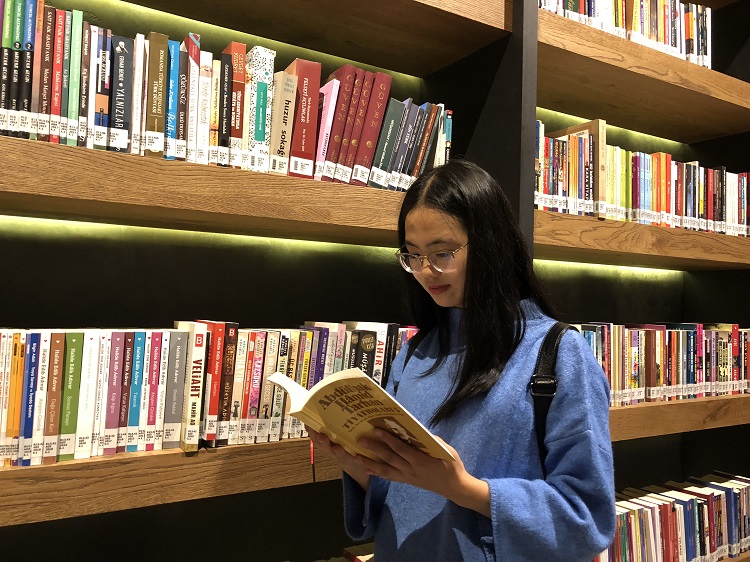Spring Bud Blooms | Spring Bud Recipient Helping Schoolgirls Fulfill Dreams
"Have you ever considered what your life would be like if you hadn't been a beneficiary of the Spring Bud Project?" That question was once posed to Li Yonghua over the phone by her elder sister. "I might have dropped out of school and married early." Li answered.
Li is now employed as a legal consultant with a State-owned enterprise in Xi'an, capital of Northwest China's Shaanxi Province. She was born into a rural family in Minhe Hui and Tu Autonomous County, in Northwest China's Qinghai Province, in 1992. At that time, the locals believed girls should drop out of school when they reached the third year of primary school.
However, Li was fortunate enough to lead a different life because of the Spring Bud Project. Li loved going to school, even though it took her about 40 minutes to walk to the school, which was located on the top of a mountain.

Like many of the girls around her, Li was on the edge of dropping out in her third year of primary school. At that time, only a few girls were left in her class. Li often cried, and her mother tried to comfort her.
"My hometown was impoverished in the 1990s. Many families couldn't even afford the 100-yuan school fees for their children. Compared with poverty, I think the hardest thing to eradicate is the deep-rooted preference for sons over daughters," Li says.
Luck befell Li, and the other girls in her class, when they received support from the People's Armed Police Force Spring Bud Project. As a result, Li and her classmates entered the fourth grade.
Thanks to the Spring Bud Project, Li completed her primary school education. She and her family moved to Golmud, a city in Qinghai, where she enrolled in middle school.
Urban life helped Li realize that women could also have a career and achieve personal dreams, just like men.
Li studied hard, graduated middle school and enrolled in a key high school in Golmud. Three years later, she was admitted to Peking University, one of the most prestigious universities in China, with the second-highest score on the college-entrance examination in Qinghai.
While she was a university student in Beijing, Li paid special attention to children's education, and she did her utmost to help girls complete their studies. "Because I've been helped, I want to give back to society, and to help people in need," Li says.
"What impressed me most was my involvement as a volunteer in the Warm West Project. We helped pack and deliver donated books, and other materials, to children in a remote area in western China during a snowy day." Li recalls.
Upon graduating from Peking University, in 2015, Li went to Turkey for further education. During her stay there, she participated in various volunteer activities.

Li became a teacher of the Turkish language, at Zhejiang International Studies University, in Hangzhou, capital of East China's Zhejiang Province, after she returned to China.
She often shared her own stories and experiences to inspire her colleagues and students to lend a helping hand to school-age girls who were trying to complete their education and realize their dreams.

Li is convinced all girls can make their dreams come true with the help of charitable people.
In July 2021, Li left Hangzhou to begin her new career, as a legal consultant, in Xi'an. Her husband works in Xi'an. Li remains enthusiastic about participating in charitable activities, and she remains dedicated to helping those in need and in conveying the love of the Spring Bud Project to others.